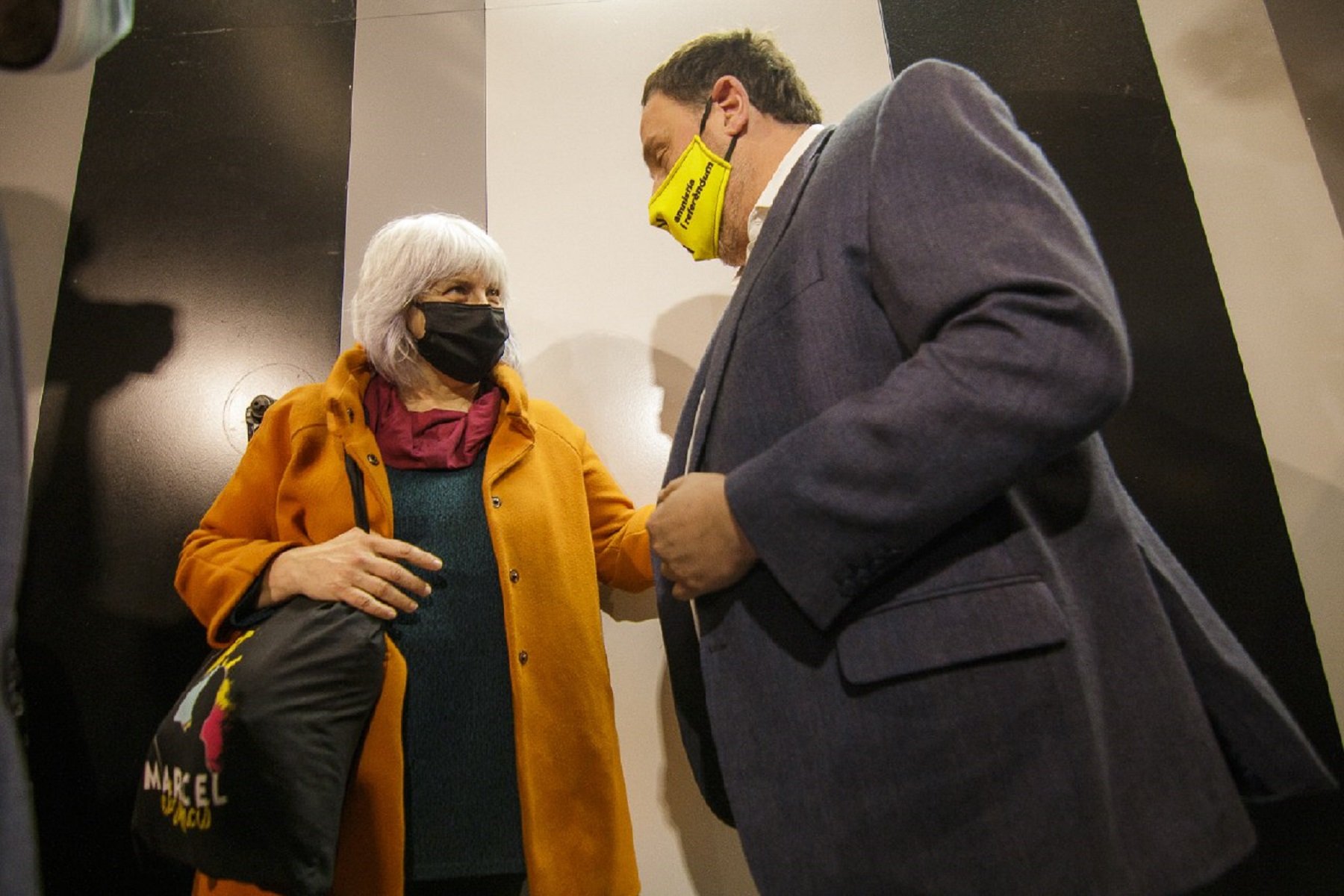Throughout the Catalan election campaign, the Republican Left (ERC) asserted the need for the road to the Catalan Republic to advance via the left lane. The election result vindicated this direction, as by a small margin voters put ERC in the driving seat of a victorious pro-independence bloc. Thus, on Wednesday afternoon, the Republicans opened the first round of contacts to form a new government with the staunchly left-wing CUP (Popular Unity Candidature). Both parties agree on the need to shift the centre of gravity of the independence process to the left. A perspective which leaves Junts (Together for Catalonia) as the stony-silent party guest.
The negotiating teams of ERC and the CUP, made up on the one hand by Sergi Sabrià, Marta Vilalta, Laura Vilagrà and Josep Maria Jové and, on the other by Carles Riera, Eulàlila Reguant, Pau Juvillà and Xavier Pellicer, met this Wednesday afternoon to analyze the scenario which has opened following the 14th February elections and the viability of a "broad based" government as proposed by ERC's Pere Aragonès. For now, the talks are in their infancy: today's meeting was only a first contact and they have agreed to return to the table again this week. Up for debate, the CUP's demand to reform the policing model, following the Mossos' actions to quell the violent protests after Pablo Hasél's jailing. The CUP's dilemma over whether to enter government or stay in opposition is very much alive. One of their constituent groups, Endavant, is against taking the step, while a second group, Poble Lliure, and their ally Guanyem - candidature leader Dolors Sabater's party - would approve of the idea if their conditions are met.
According to sources close to today's meeting, the delegations of the two parties found that the election result shows the clear will of Catalans for a turn to the left in politics, as well as their determination to continue taking steps towards independence. The fact that ERC has chosen the CUP to open talks responds to the intention to make it clear to Junts that, from now on, the choir will be led by the voices on the left. It also incorporates the message to Puigdemont's party that this time there will not be a 50-50 distribution of chairs as has happened so far. As of this afternoon, Junts had not yet received a call from ERC.
Four-way negotiation
The aim of ERC is to form a government that goes beyond the pro-independence bloc, adding the CUP and Junts, but also the Comuns - who in general accept Catalonia's right to decide its political future, without necessarily favouring independence. Throughout this week there will be meetings with other actors, on the part of both ERC and the CUP. At the moment meetings will be bilateral - each party meeting individually with each of the others - with the exception of Junts and Comuns who veto each other.
The Republican Left assures that the encounter has served to take the temperature of the relationship between the two parties, as well as to establish the basis for the negotiation that must start from now on. For their part, the anti-capitalist party plans to hold further meetings of its own in the coming days, not just with the Comuns and Junts, but with a wide range of social groups and organizations.
Government without Junts?
While ERC's first choice is a grand coalition, the operation is extremely complex, if not impossible. If the four-party government does not bear fruit, the question is what the party led by Oriol Junqueras will prioritize. There are three possible scenarios: a government of the three pro-independence groups (ERC + Junts + CUP), which would have a majority of 74 deputies (when the minimum for a parliamentary majority is 68); a re-run of the deal from the last legislature (ERC + Junts), which would fall 3 seats short of a majority; or a coalition with the left-wing sovereignists, that is ERC + CUP + Comuns, which also be a minority government with 50 deputies.
In the ranks of ERC, there are a growing number of voices who favour the third option. This is the case, for example, of Joan Tardà and Gabriel Rufian. However, for this to happen, outside participation by a fourth parliamentary group would be needed. And here the only ones strong enough to tip the scales would be the Socialists of the PSC (33) or Junts (32). Without either of them it would not be possible to beat the votes opposing an investiture. Right now it seems unlikely that either Socialists or Junts would be happy to lend their arms to an operation of this nature. But if Catalan politics has taught us anything, it's that, as the Mago Pop says, nothing is impossible.

